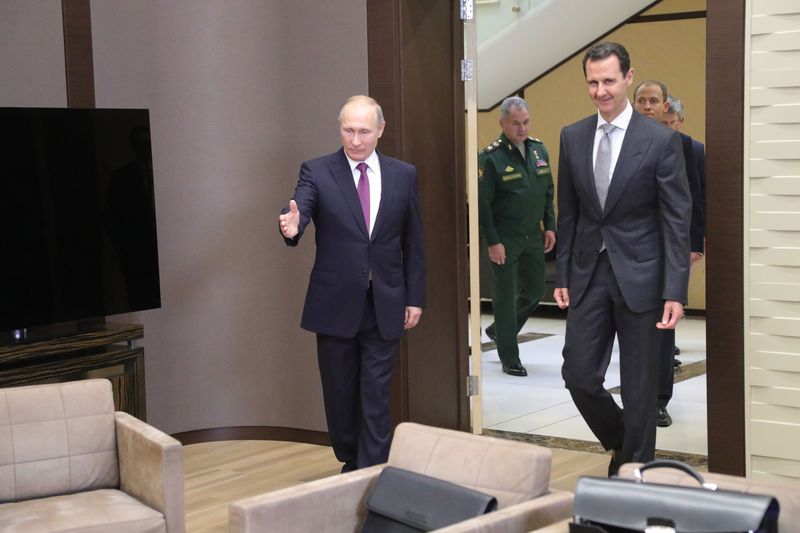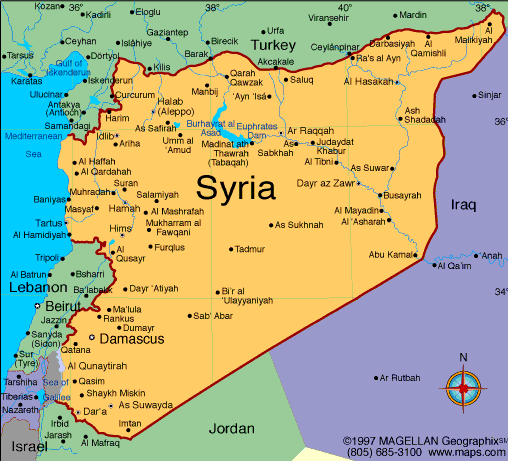Putin-Assad meet
November 21, 2017 | Expert Insights

Russian President Vladimir Putin hosted Syrian leader Bashar al-Assad in Russia to discuss the ongoing Syrian conflict.
Putin renewed his call for a political solution to the war in Syria. The leaders agreed that a resolution for the conflict was in switching from military operations to the search for a political solution.
Background
Russia has supported the internationally recognized government of Syria since the beginning of the Syrian conflict in 2011: politically, with military aid, and since 30 September 2015 also through direct military involvement. The latter marked the first time since the end of the Cold War that Russia entered an armed conflict outside the borders of the former Soviet Union. Russia has also separately provided armament and air support to Turkey and the Syrian Democratic Forces in their operations against ISIL in Syria.
The Syrian Civil War began in the early spring of 2011 within the context of Arab Spring protests. There were nationwide protests against President Bashar al-Assad's government, whose forces responded with violent crackdowns. The civil uprising phase created the platform for the emergence of militant opposition movements and massive defections from the Syrian Army, which gradually transformed the conflict from a civil uprising to an armed rebellion, and later a civil war. By 2012 it was reported the U.S was running a covert operation in aid of militant groups fighting the Assad government.

Analysis
Russian President Vladimir Putin hosted Syrian leader Bashar al-Assad in Russia to discuss the ongoing Syrian conflict. Putin renewed his call for a political solution to the war in Syria. The leaders agreed that a resolution for the conflict was in switching from military operations to the search for a political solution.
The meeting comes ahead of talks between Syria's allies Russia and Iran, and Turkey, which backs the rebels. “We still have a long way to go before we achieve a complete victory over terrorists. But as far as our joint work in fighting terrorism on the territory of Syria is concerned, this military operation is indeed wrapping up,” Putin said. “I think that now the most important thing, of course, is to move on the political questions, and I note with satisfaction your readiness to work with all those who want peace and a solution [to the conflict].”
Putin also hailed Assad’s apparent readiness to cooperate with all parties seeking a peaceful settlement of the Syrian crisis. He said, “A final and inevitable defeat of the terrorists is close in Syria. I think now the main thing is to move to political processes, and I am pleased to see your readiness to work with everyone willing to establish peace and find solutions.”
Assad for his part, reportedly told Putin, “At this stage, especially after we achieved victory over terrorists, it is in our interests to move forward with the political process. And we believe that the situation we now have on the ground and in the political sense permits us to expect progress in the political process. We count on the support of Russia to ensure the non-interference of outside players in the political process.”
In November 2017, at the sidelines of the APEC summit, US President Donald Trump and Putin met to discuss the Syrian conflict. They signed a joint statement on solving the Syria conflict where the leaders agreed there was no military solution to Syria's civil war and called on all parties to take part in a Geneva-led political process.
Assessment
Our assessment is that as violence continues to escalate between various factions in Syria, it is imperative to get all governments and leaders involved in the fight to seek a peaceful resolution. Syrian leader Bashar al-Assad’s visit to Russia is a rare occurrence and perhaps indicates that he is now willing to engage in diplomatic discussions with all parties involved.








Comments